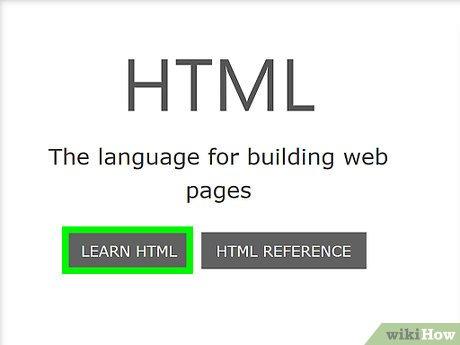

Use it as an outlet for creativity. You can create anything with the right lines of code – cartoons, websites, and software programs are just the most common. You might also be able to create something that no one has ever seen before. If you think about coding as an outlet for your creativity – the same way painting or writing are – you might become more interested in coding itself.[1] X Research source For example, you could learn JavaScript to create cartoons or animations based on a story you're written.You could also use CSS (Cascading Style Sheets) to create any kind of website - for a company, a product, or even your own blog.WH.performance.mark('step1_rendered');
Use it as an outlet for creativity.
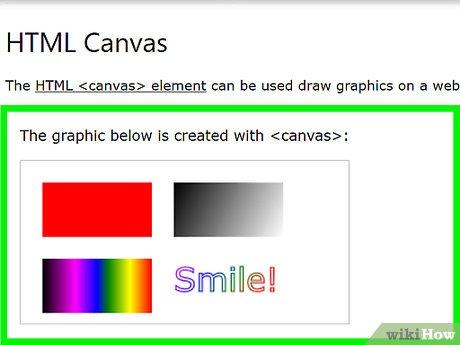
Link coding to your other interests. If you love to read, you can use coding to build a website to write your own book reviews or blog about books you love. If you love cartoons, you can code your own animation. Think about your passions and then come up with ways that coding can help you pursue them.[2] X Research source If you like music, for example, you can learn website coding that allows you to create a website where you can review your favorite music. With the right coding language, you can embed music samples or links to your favorite bands' websites,
Link coding to your other interests.
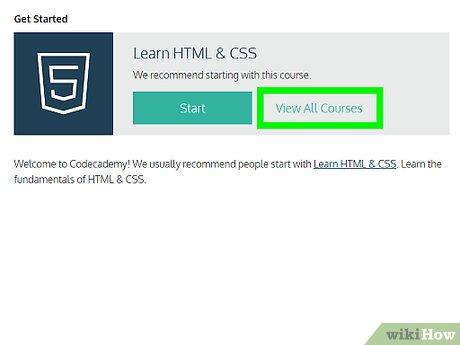
Keep a goal in mind. If you set out to learn coding just for the sake of learning how to code, you might not stay interested in it. Instead, have a specific goal for the coding you want to do. Tell yourself you’ll make one page of a website, or a few frames or a cartoon. Having a goal can help keep you focused and make learning to code feel less overwhelming.[3] X Research source
Keep a goal in mind.
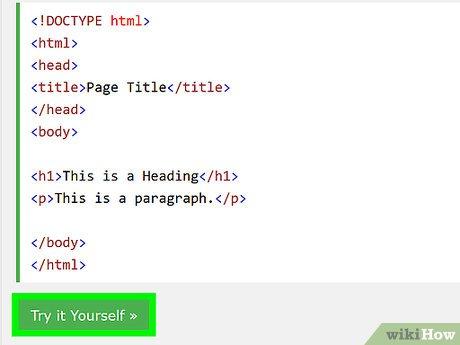
Form a coding group with other people. It can be hard to maintain an interest in something that you’re doing all by yourself, so it’s probably easier to stay interested if you’re doing it along with other people. Ask your friends if they want to learn to code with you – it can make it seem more like a social activity and way more fun. It also gives you a few resources if you run into trouble.[4] X Research source
Form a coding group with other people.
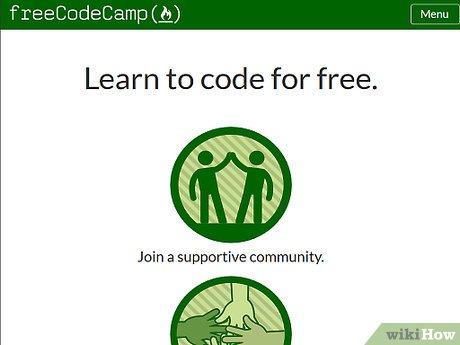
Try out coding software, websites, or apps. Sometimes the best way to get interested in something is to try it yourself, and there are so many free or pretty cheap ways to try out coding.Free coding websites include Codeacademy, Free Code Camp, Codewars, and edX.Free coding games include Scratch, through MIT’s website.Robomind is an app available for Windows, Mac, and Linus operating systems. Cargobot is a coding game aimed toward a younger audience.[5] X Research source
Try out coding software, websites, or apps.
Sample different types of coding. If you’ve tried coding before, but just couldn’t get excited about it, it could be that the coding language you were using didn’t work for you. There are so many coding languages, and they all work a little differently. HTML and javascript are both used for websites. C or C++ can help you program your computer's operating system. Try something new and see if it gets you more interested.[6] X Research source Python is a type of coding that you can use on a lot of different platforms. It's also pretty user-friendly, so it might be a good place to start.Structured Query Language (SQL) is used on websites to create, store, edit, or delete any kind of website content you can think of. This is a good choice if you're thinking of creating a website that will need a lot of updating.
Sample different types of coding.
Be patient. A lot of people lose interest in something because they aren’t good at it right away. A lot of coders aren’t very good when they start, and that’s okay! You might not be the greatest coder right away, or you might mess up. Be patient with yourself and give yourself a chance to get good.[7] X Research source
Be patient.
Learn the basics first. If you try to jump in and begin coding projects right away, you might find yourself hitting a lot of dead ends because you just don't know what to do. Instead, learn the basics of the coding language you're interested in first. That way you know what each command does and where it might be useful.[8] X Expert Source Stephen Cognetta, MBATech Interviewing Coach Expert Interview. 21 July 2020.For example, if you want to use your coding skills to create animations, you should learn the basics of JavaScript first. Learn why you start a command with 'g.' and in what order your commands should be listed. Once you know these basics, using them to code more and more complicated projects can be a little easier.
Learn the basics first.
Start small. If your first coding project is a big project with lots of different steps, you might feel overwhelmed and lose interest in coding. If you start with a small, personal project, you can see the results of your work more quickly. Making it a personal project prevents you from feeling pressure from the person you're coding for.[9] X Expert Source Stephen Cognetta, MBATech Interviewing Coach Expert Interview. 21 July 2020.For example, you could start with a very short animation, where your cartoon character only does one thing - like waving.
Start small.
Keep a portfolio. As you learn to code, keep a list of the projects you've completed. If you ever feel discouraged, or like you haven't accomplished much, you can look back at your portfolio. You'll be able to see how much you've done and how you've been able to complete harder and harder projects.[10] X Research source
Keep a portfolio.
Leave a Comment